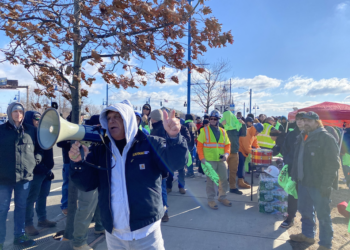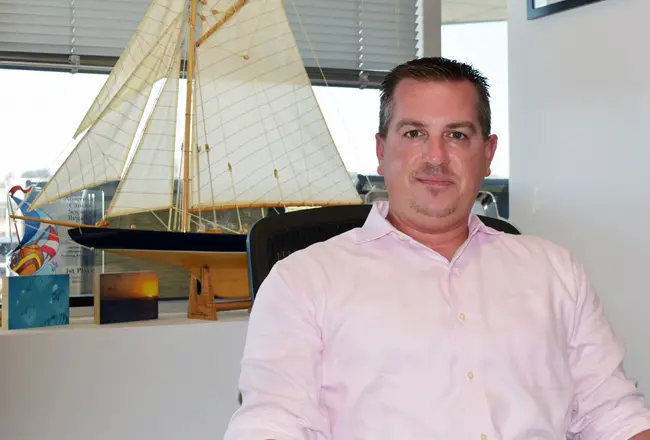It”™s been known to happen to the best of the professional world: getting fired from one”™s job. For some people, this is a mark of shame. But according to leadership consultant Val Wright, this is nothing to be ashamed about.
“It is one of the most common, worst kept secrets that exists,” said Wright in an upcoming interview for Westfair Communications”™ YouTube series of executive conversations. “When you start talking about this, you”™d be surprised how many other people reciprocate with a story where they”™ve had something similar happened to them.”

Wright is no stranger to the most powerful corridors of the corporate world ”” her clients include Starbucks, Microsoft, LinkedIn, the Los Angeles Lakers and DreamWorks Animation, and she is an inductee in the Million Dollar Consultant Hall of Fame. Her new book, “Rapid Growth, Done Right,” includes a section on losing one”™s job. Wright observed there is almost always two versions for someone being shown the door: the official version and the unofficial version.
“The unofficial version is you don”™t get on with your boss and you don”™t get on with your peers,” she said. “There can be lots of made-up reasons or created reasons why that happens.”
Wright listed warning signs that proceed the end of a job as including the loss of specific responsibilities, another person being hired to a superior position above you or statements about how the company is moving in a different direction. When those occur, Wright warns that “it”™s time for you to move on or take a different job.”
Increasingly, people have lost jobs due to foolish behavior outside of the workplace that turned up on the internet as viral videos. Wright advised business professionals to be cognizant of how they behave in their personal lives, as an uploaded cellphone video of embarrassing actions can lead to career fatality.
“I say to people, “If you Google someone, what”™s out there on them? And do you want that being the top of the first page of Google search?”™” she asked.
Arguably the most famous heave-ho in corporate America was Steve Jobs from the leadership role at Apple, although years later he would be brought back. Wright assured that Jobs”™ experience was not without precedent.
“I think that maybe happens more often than we know,” she said. “But people don”™t accept that request to come back and fix the things that needed to be fixed. What I see happen is when people are fired or part ways amicably or secretively, the story doesn”™t often come out until much later. And many people do the ostrich, they bury their head in the sand and are like, ”˜I don”™t want to talk to anyone. I don”™t want anyone to know that I”™m not working there anymore.”™ And that”™s the very moment you need to be out there talking to people.”
However, there is a right way and wrong way to spread the word about losing one”™s job and Wright warned that badmouthing a former employer on social media was the wrong way.
“If you don”™t want to work in that industry again, sure,” she said with a laugh. “Go ahead. Some people say, ”˜I”™m done. I”™m going to set up my own business, I”™m going to be an entrepreneur, I”™m going to move to Hawaii and open a surf shack ”” in that case, it”™s completely fine. But the reality is most of us do not have the means to be able to do that.”
Wright acknowledged that ranting about the pain of a lost job is understandable but stressed it makes more sense to “find a close circle of confidants who you can let rip with and vent and share. And then quickly, find people who are going to help you discover what”™s next.”
In detailing job losses for “Rapid Growth, Done Right,” Wright found herself surprised at the number of people willing to share stories of personal failure.
“Being publicly vulnerable isn”™t something that comes naturally to everyone,” she said. “What surprised me was when really incredibly successful people said, ”˜Hey, I screwed up here”™ and ”˜I made a mistake or I could have done this differently.”™ I would love that to become more of a trend that people were able to share a mistake, but then not be publicly vilified or fired because they made a mistake. You learn from what you did wrong.”
Wright”™s new book was completed before the COVID-19 pandemic created economic tumult that resulted in many people either being furloughed or laid off from their work. While Wright said some companies “have done a really brilliant job” in addressing this crisis of human resources, others were much less inspiring in their actions.
“Bird, the electronic scooter company, did a terrible job of announcing to people on Zoom and then immediately cutting off everyone”™s email access in a very impersonal way,” she said. “Companies who have done a good job of communicating will reap the benefit of knowing that they”™ve been treating their employees well.”





















